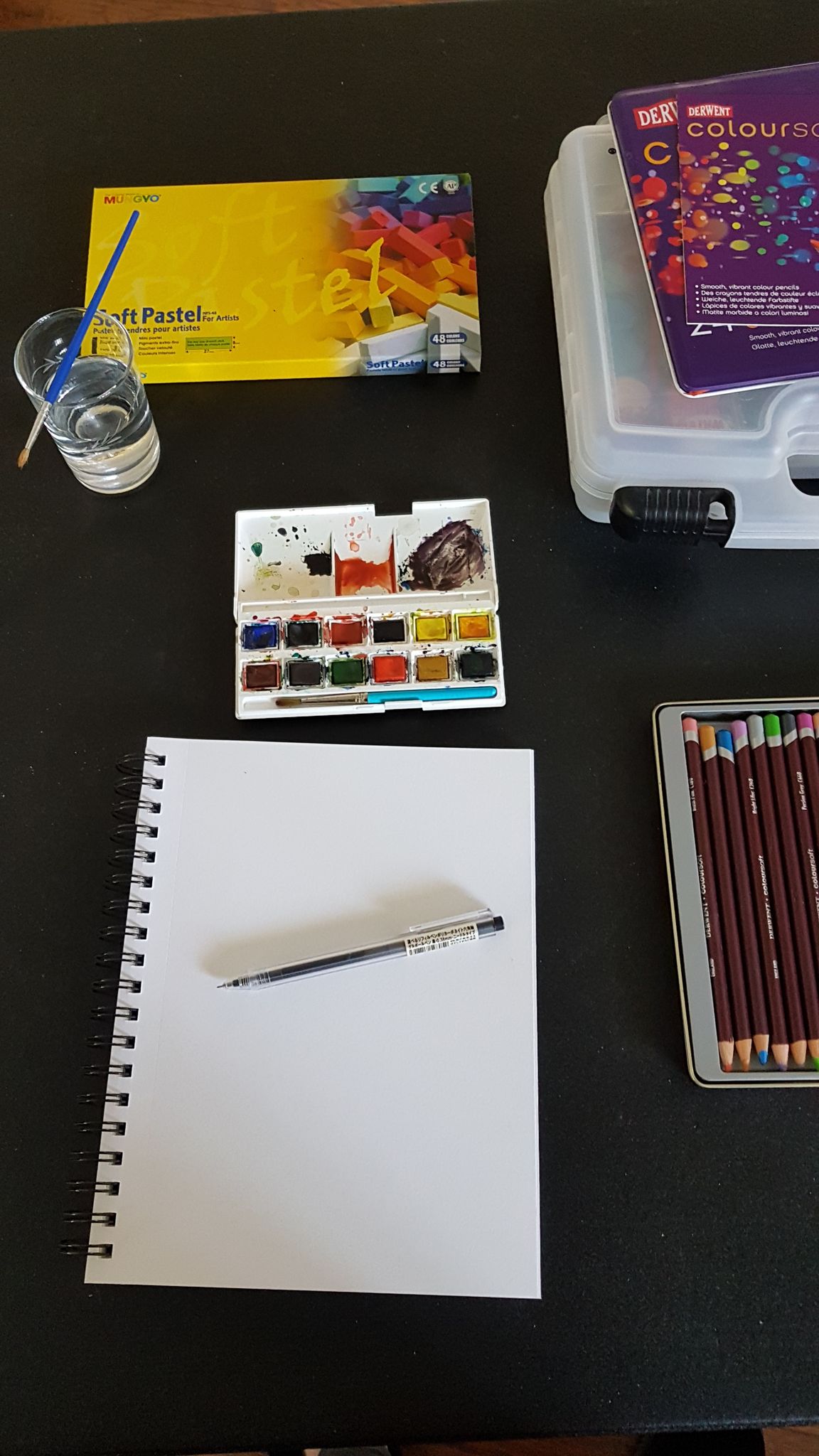This week’s worship service for Harrow United Church continues my series on lines from The Lord’s Prayer, and also recognizes that this was “Reformation Sunday”, which marks the beginning of the Protestant movements that eventually broke away from the Roman Catholic Church, to form new Christian denominations. Included with the YouTube video of the service is a short video made available in 2017 by National Geographic, marking the 400 year anniversary of Martin Luther’s publication of 95 Theses of contention with the policies and teachings of Rome.
Our worship service also features two organ/bag pipe duets by Larry Anderson and John Woodbridge.
What follows here is the text of the Learning Time, notes from the teaching time about the spiritual practice of humility, and the pastoral prayer.
| Learning Time: “Forgive us our sins…” Jesus and his disciples had few possessions. They travelled from village to village to share the message of direct access to God’s love. It was only after Jesus’ earthly life, his death on the cross, and the first Easter, that the movement got organized. Followers began to meet weekly, outside the local synagogue, or in homes of believers. They were drawn together by the spark Jesus had brought to them, the wild and free spirit of God’s love. The Jesus followers chose leaders. They appointed visitors to look in on widows, the sick, and the poor. They collected food and money to share with those in need. For these good works, they began to need systems, and rules. The Jesus movement was, from the beginning, a missionary movement. Local congregations collected money to support travelling preachers, and sent money to other congregations when they were in need. The movement spread, following the trade routes established by the Roman conquerors. The Jewish religious leaders began to see the Jesus movement as a rival, which needed to be suppressed. They sent out enforcers with authority to accuse followers of the Jesus Way with blasphemy, a crime punishable by stoning. The Jesus followers broke ties with mainstream Judaism, and gradually became their own institution, the Christian Church. After a few hundred years, the fastest growing faith in the Roman Empire was adopted by the Emperor Constantine. He gave Christianity royal approval. The Emperor imposed a command structure on the church, with arch-bishops (cardinals) rather than generals, bishops rather than colonels, and priests rather than captains. He ordered the hierarchy to define official teachings, choose which documents would be scripture, and establish a headquarters. With the Emperor’s backing, the church flourished, and spread to every land controlled by Rome, and beyond. Long after the fall of the Holy Roman Empire, the church held power as the official religion of Europe. The church placed the crowns on the heads of kings and queens. The more powerful, and wealthy, and established the church became, the less it resembled those first gatherings of Jesus followers, excited by the news that God loved each person, regardless of earthly status. The quiet voice of the spirit was at times overwhelmed. Along with an affection for rules, rigid militaristic structure, and close relationship with kings and queens, the church absorbed the values of the predominant culture. Faithfulness and patriotism, as we see to the south of us, make dangerous partners. The church is co-opted, and has no voice to challenge bad government. It’s hard to have a prophetic voice, to speak for those on the fringes of society, when you’ve chosen to cater to the powerful. The church moved from being an offshoot of Judaism to an often blatantly anti-semitic organization. It became less a source of hope for the poor and hungry, and more a chapel for the rich and powerful, who found it useful to have an unending supply of cheap labour. The church built the largest, most elaborate buildings in every town. They sought the friendship, and money of landowners, government officials, the powerful. The church found itself condoning slavery. It blessed explorers who claimed huge tracts of land for European kings, disregarding the humanity of the original occupants, who were not white or Christian. Even in those cruel times, there were brave voices who would ask, is this really what Jesus would have us do? The Jesus Way began in the Middle East, but as its command centre moved to Europe, Christianity became, for lack of a better term, a white people’s religion. Look at holy paintings and stained glass from most of the last 1500 years. Up until very recently, Jesus and his friends look more like merchants from Venice than peasants from Palestine. Their brown skin was white-washed, so that even today, people are shocked to learn Jesus did not have blonde hair and blue eyes. After many centuries, church, government, and business interests were so deeply inter-twined, that when a European country raised an army to fight in Crusades to try to take back the Holy Land from Muslim control, it was hard to tell if this was a king’s idea, or a pope’s idea. Either way, these very expensive wars seem far removed from what Jesus was all about. There were some prayerful souls, like Saint Francis, who believed he had more in common with faithful Muslims than his religious superiors would admit. There have been in every era of the church, the quiet, mystical types who were lit with the spark that fired Jesus up, the wild and free spirit of God. But often, practical concerns of the institution washed over, and threatened to drown the spark. Huge cathedrals and armies to fight Crusades were expensive projects. One massively successful way to raise money was the sale of indulgences. An indulgence was essentially forgiveness for sin, which could be purchased from an authorized agent of the Pope. Those agents carried a license that allowed them to sell indulgences, and collect a commission on each sale. In 1517, a Catholic monk named Martin Luther, a scholar at the University of Wittenberg in Saxony, nailed 95 Theses to the door of a church. His purpose was to open discussion about what he saw as religious malpractice, on the part of the leadership of the Roman Catholic Church. Luther particularly objected to the selling of indulgences. He was all in favour of forgiveness, but did not believe forgiveness could, or should be bought and sold. Jesus taught us the Lord’s Prayer, in which we simply ask God, “forgive us our sins…” Luther is only the best known of the Reformers. Movements to fix the church began all over Europe. An important tool was the Bible, reproduced cheaply after the invention of the printing press, and moveable type. Martin Luther fed the revolution of thought by translating the Bible into German. Other scholars made the Bible available in their own local languages. Until then, the few copies made were in Latin, the official language of the church. When every book had to be hand-copied, and most people never learned to read, Bibles were only in the hands of the very wealthy. Even local priests were often illiterate, and relied on stories and teachings they had memorized. Open access to the Bible made it possible for priests lower down the power structure, and lay people, to get another perspective, and to ask questions. It was not long before there were breakaway churches, led by preachers who became alienated from the Roman Catholic Church, and moved from trying reform it, to founding their own “protesting” or Protestant churches. The United Church of Canada is a Protestant church, descended from a family tree that includes Methodists, who broke away from the Anglican Church, which had earlier broken away from the Roman Catholic Church. We also have Presbyterian and Congregationalist ancestors, who believed the church is to be run, from the bottom up, not from the top down. When they started their churches, they did not appoint bishops, or archbishops. An historian named Phyllis Tickle, used the analogy of “The 500-Year Rummage Sale” to describe changes over the years. Tickle said the church “cleans house” roughly every 500 years, deciding what to dispose of, and what to keep, to make room for new things. About 2000 years ago, Jesus appeared on the scene, and offered a way to know God, and live a faithful life without being bogged down by the rules and institution of the Jewish faith. After Jesus’ earthly life, his followers began, perhaps inadvertently, to create another huge institution, that thrived as the Holy Roman Empire grew. When the empire collapsed around 500 years later, the church focused on preserving its teachings, in monasteries and convents with vast libraries. Around the year 1000, the Christian Churches of the East, the Orthodox Churches split away from Rome, and the two branches went their separate ways. Each half of the split had to decide what was essential for them to keep, and what should go in the rummage sale. In the 1500’s, beginning with Martin Luther, the Reformation led to more splits, as groups discarded parts of Catholic teaching and practice that no longer rang true for them. We are now into the 21st century, the next 500 years. There have been so many changes in culture, the way economies are organized, and the way information is shared. We have learned so much about how the universe works. People live their lives so differently from 2000 years ago. How we do church, and what values we uphold, and which projects we consider important, have always been influenced by what is happening in the world we live in. We are living in a strange new time. What new strategies are we going to need, to best serve God’s people? What will we decide we absolutely want to keep doing? What new things will we feel lead to trying, to see if they fit? What will end up in the rummage sale? This is a time for deep and careful listening to that quiet voice, the wild and free spirit of God, who continues to speak, and who will lead us towards what God has for us to do. Amen Spiritual Practice: Humility I see a relationship between our capacity to accept, and to offer forgiveness, and humility. Humility means not putting yourself either above or below others; it means not thinking about your position on a scale. Some who know the most about the practice of humility are in addiction recovery programs. Here is some wisdom from that world: Be Grateful –Be grateful for the gifts you have been given. Be Unique – Don’t compare yourself with other human beings. Be Teachable –Many things you believe may be false and you have so much to learn from other people. Be Kind – Practice kindness. When you practice kindness, you experience the fulfillment of feeling connected to other people. Be Free – Let go of your expectations. It doesn’t matter how great you are at making plans, predicting outcomes or how adamant you are in your beliefs. Life will always produce results that you did not expect or want. |
Pastoral Prayer
Dear God of Continuing Revelation; Help us learn, even if by trial and error, what is real, what is meaningful, and what is necessary for life, and for love. Help us to learn to let go of those things that are charming distractions in our lives. Help us to give our hearts and imaginations to worthy things.
Help us keep our minds and hearts open to new insights, and to the ways our assumptions may get in the way of see new truths.
We pray for all who suffer, all who grieve, all who feel lost, and all who are afraid. We pray for people we know, for people we don’t know, and we pray for ourselves. Help us learn how to live with confusion, uncertainty, and unrealized expectations. Help us to see love at work in the world, in spite of our disappointments- the tragic ones, the trivial ones, even the imagined ones.
We pray for people who suffer at the hands of others. Those who are victims of sexual predators. Those who face discrimination because of their ethnic or cultural background, their appearance, their gender, their orientation, or their economic or social status. We pray for vulnerable people everwhere.
We pray for those who are hungry. We pray for those who lonely. We pray for those who are depressed. We pray for those who feel trapped in addictions and compulsions.
We pray for caregivers and volunteers, and good samaritans, and helping hands. We pray for protestors and prophets, for whistle-blowers and others who take a stand for what is right.
We pray for poets and musicians and painters and thinkers and people who make things to improve life for others. We pray for the leaders of our faith communities, and for all others who interest themselves in the spiritual well-being of others.
We pray for this congregation, and its expanding sense of mission. Help us to sort out what you need and want us to do, God.
We pray in the name of Jesus, who also gave us a very good prayer.
The Lord’s Prayer (together)
Our Father, who art in heaven,
hallowed be thy name,
thy kingdom come,
thy will be done,
on earth, as it is in heaven.
Give us this day our daily bread,
And forgive us our trespasses,
as we forgive those who trespass against us.
And lead us not into temptation,
but deliver us from evil:
For thine is the kingdom, the power, and the glory
forever and ever. Amen

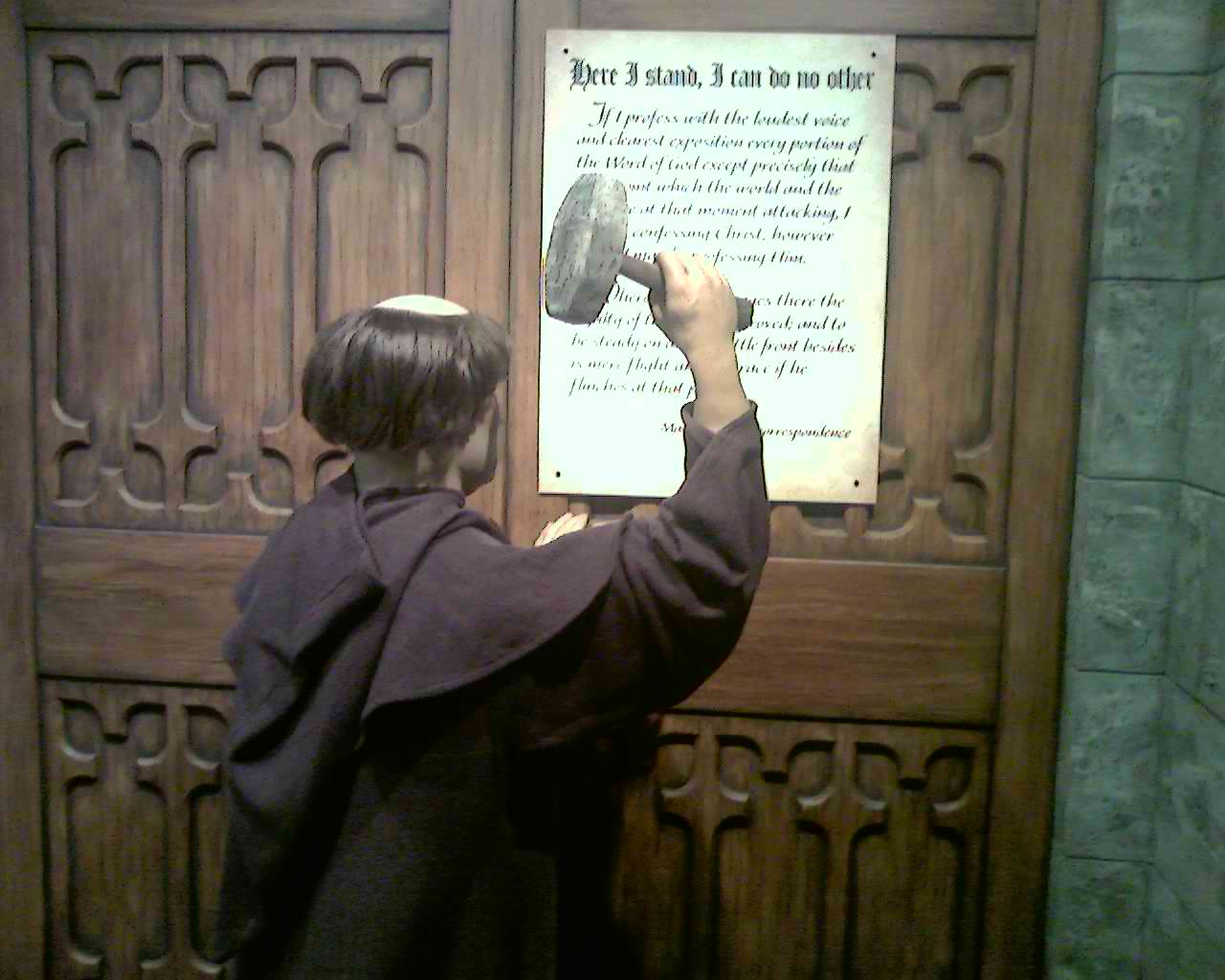

 At one of the Black Lives Matter peaceful protests, I saw a whole family wearing t-shirts bearing the slogan “Children are not born racist. That has to be taught.” This reminds me of the quote by Nelson Mandela, who said, “No one is born
At one of the Black Lives Matter peaceful protests, I saw a whole family wearing t-shirts bearing the slogan “Children are not born racist. That has to be taught.” This reminds me of the quote by Nelson Mandela, who said, “No one is born 
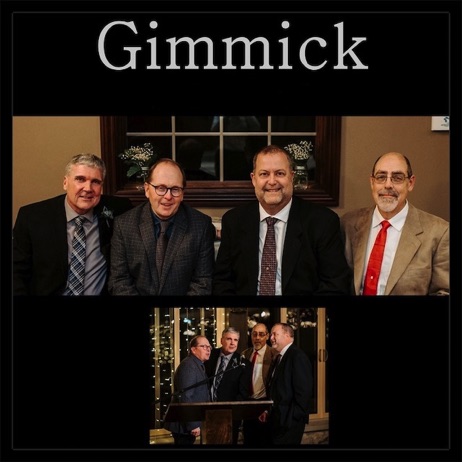 The video opens with a great version of “Lean on Me” by Harrow’s own boy band, “Gimmick”: Greg Iler, Barry Mannell, Jeff Csikasz, and Jeff Gorick. We are so fortunate to have each of them as members and leaders in Harrow United Church.
The video opens with a great version of “Lean on Me” by Harrow’s own boy band, “Gimmick”: Greg Iler, Barry Mannell, Jeff Csikasz, and Jeff Gorick. We are so fortunate to have each of them as members and leaders in Harrow United Church.
 We began most of our online confirmation classes by reading or hearing “A New Creed”. It was on page 6 of our confirmation resource, called Jesus 24/7. This creed, or statement of faith has been part of the life of the United Church of Canada since 1968. In 1998, a line was added to indicate that we are called to live with respect in creation, an idea that seems even more important these days.
We began most of our online confirmation classes by reading or hearing “A New Creed”. It was on page 6 of our confirmation resource, called Jesus 24/7. This creed, or statement of faith has been part of the life of the United Church of Canada since 1968. In 1998, a line was added to indicate that we are called to live with respect in creation, an idea that seems even more important these days.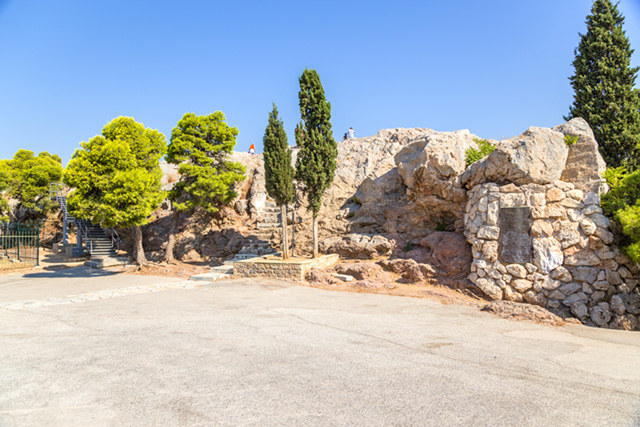


 In my early forties I started running long distance, after having been a happy and plump couch potato, for quite a while. The process of training to build the capacity to run 42.2 kilometres taught me a lot.
In my early forties I started running long distance, after having been a happy and plump couch potato, for quite a while. The process of training to build the capacity to run 42.2 kilometres taught me a lot.
 (In related news, if ShoeBox Sunday School happens, we will need some shoeboxes. I know we have a few in my house, but may require more.)
(In related news, if ShoeBox Sunday School happens, we will need some shoeboxes. I know we have a few in my house, but may require more.) My family is taking part in a weekly trivia game with some friends spread across the country, that is something like a pub trivia night. We are doing this as a video chat, and it works quite well. (My adult children are very adept at using the technology!)
My family is taking part in a weekly trivia game with some friends spread across the country, that is something like a pub trivia night. We are doing this as a video chat, and it works quite well. (My adult children are very adept at using the technology!)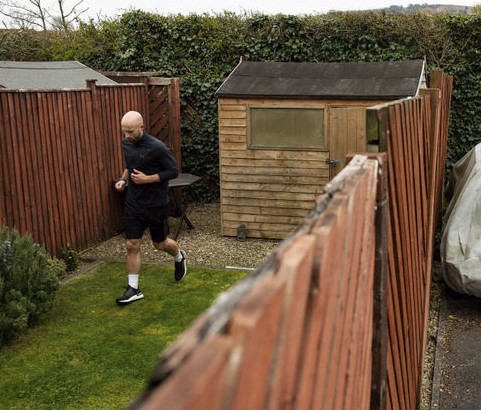
 I once had to miss a half marathon for which I’d trained hard, so I ran it as 20 laps of the street we used to live on, which was actually part of a rectangle pieced together around a little park.
I once had to miss a half marathon for which I’d trained hard, so I ran it as 20 laps of the street we used to live on, which was actually part of a rectangle pieced together around a little park. This morning I read about James Campbell, an athlete in Cheltenham, England, who celebrated his 32nd birthday, and also raised over 18,000 pounds for the National Health Service efforts to fight the COVID-19 pandemic, by running a full marathon in his back garden.
This morning I read about James Campbell, an athlete in Cheltenham, England, who celebrated his 32nd birthday, and also raised over 18,000 pounds for the National Health Service efforts to fight the COVID-19 pandemic, by running a full marathon in his back garden. If I’d read this yesterday I would have assumed it was an April Fools joke, but it’s been reported by a number of credible sites, including the BBC.
If I’d read this yesterday I would have assumed it was an April Fools joke, but it’s been reported by a number of credible sites, including the BBC.

